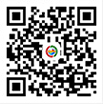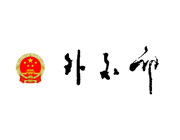


African Members of FOCAC
- Algeria
- Angola
- Benin
- Botswana
- Burkina Faso
- Burundi
- Cabo Verde
- Cameroon
- Central Africa
- Chad
- Comoros
- Congo
- Cote d'Ivoire
- Congo(Kinshasa)
- Djibouti
- Egypt
- Equatorial Guinea
- Eritrea
- Ethiopia
- Gabon
- Gambia
- Ghana
- Guinea
- Guinea-Bissau
- Kenya
- Lesotho
- Liberia
- Libya
- Madagascar
- Malawi
- Mali
- Mauritania
- Mauritius
- Morocco
- Mozambique
- Namibia
- Niger
- Nigeria
- Rwanda
- Sao Tome and Principe
- Senegal
- Seychelles
- Sierra Leone
- Somalia
- South Africa
- South Sudan
- Sudan
- Tanzania
- Togo
- Tunisia
- Uganda
- Zambia
- Zimbabwe
- The Commission of the African Union
Algeria
(Updated March 2018)
【OfficialName】People’s Democratic Republic of Algeria
【Area】2.38 million k㎡
【Population】40.8 million (2016), who are mainly Arabs, followed by Berber (together about 20% of the population). Minorities include the Mzab and Tuareg groups. Arabic is the official language and French is widely used. Islamism is the state religion.
【Capital】Algierswith a population of 3.76 million
【Head of State】PresidentAbdelaziz Bouteflika was elected in April 1999 and re-elected for another three terms in 2004, 2009 and 2014.
【Holiday】Independence Day (5 July); Revolution Day (1 November)
【Geography and Climate】Algeria is the largest country in Africa. It is located in northwestern Africa and bordered by the Mediterranean Sea to the north, Tunisia and Libya to the east, Niger, Mali and Mauritania to the south, Morocco to the west, with a coastline of around 1,200 km. Northern coastal areas enjoy a mild Mediterranean climate, the central part has a tropical savanna climate and the south a tropical desert climate. Temperature is highest in August between 22 and 29℃, andlowest in January between 9 and 15℃.
【History】By the 3rd Century BC, two Berber kingdoms emerged in the north of Algeria. For several centuries, Algeria was ruled by the Romans, Byzantines, Arabs, Spanish and Ottomans. In 1830, the French invaded and colonized Algeria. On 3 July 1962, Algeria officially declared independence and the 5 July was set as Independence Day of Algeria. In September 1963, Ben Bella was elected as the first President of Algeria, who was overthrown by Houari Boumédiène in June 1965. Houari Boumédiène established the Revolution Council and took up the position as head of state and head of government till December 1976 when he was elected as President of Algeria. Colonel Chadli Bendjedid was sworn in as President in February 1979 till his resignation in January 1992. The five-member High Council of State, headed by Muhammad Boudiaf, was installed to act as presidency. In July of the year, Caffey took up the post as Chairman of the High Council of the State and stepped down in January 1994. Liamine Zéroual was appointed as President of Algeria and in November 1995 was elected. In the period of 1995 to 1997, a referendum passed that introduced changes to the Constitution. Algeria also adopted laws on political parties, held presidential, legislative, local and council of the nation elections and established political institutions at all levels. On 11 September 1998, Zéroual was relieved of office ahead of the completion of his term. Algeria held presidential elections on 15 April 1999 and Abdelaziz Bouteflika was elected as President, and he was re-elected for another three terms in 2004, 2009 and 2014.




